One frigid day in March of 2021, Rebecca Rusch found herself alone in the Alaskan wilderness, with no sense of where she was supposed to go next.
For three decades up to this point, Rusch made her living as an athlete who gravitated toward punishing extremes of endurance, first as a mountain climber and adventure racer, and then as a bicyclist. This was her third straight year racing in the Iditarod Trail Invitational, a grueling 350-mile bike race that was just the latest in a lifetime of punishing physical and mental challenges. She was already one of the most celebrated endurance athletes of her era, a trailblazer in nearly everything she’d done, with little left to prove.
Rusch had won this same race two years earlier, and she came off the starting line feeling about as confident as she ever had. So confident, in fact, that, a half-hour in, when nearly every other participant in the race came to a fork in the road and veered to the left, Rusch kept pedaling straight ahead, assuming she’d get the jump on all of them.
And then, as had happened so often over the years, nature came howling in to humble her.
Rusch was lost on a trail, making her way through thigh-deep snow untouched by plows or dogsleds. Night was setting in, and more snow started to fall. Rusch found herself moving through the stages of grief, from anger at her mistake to sadness that she’d blown her chance of winning the race. And then, as it got darker, Rusch began to focus on her own survival. Do I ride an hour back in the other direction, call it quits, and come back next year? Or do I soldier on and keep moving forward?
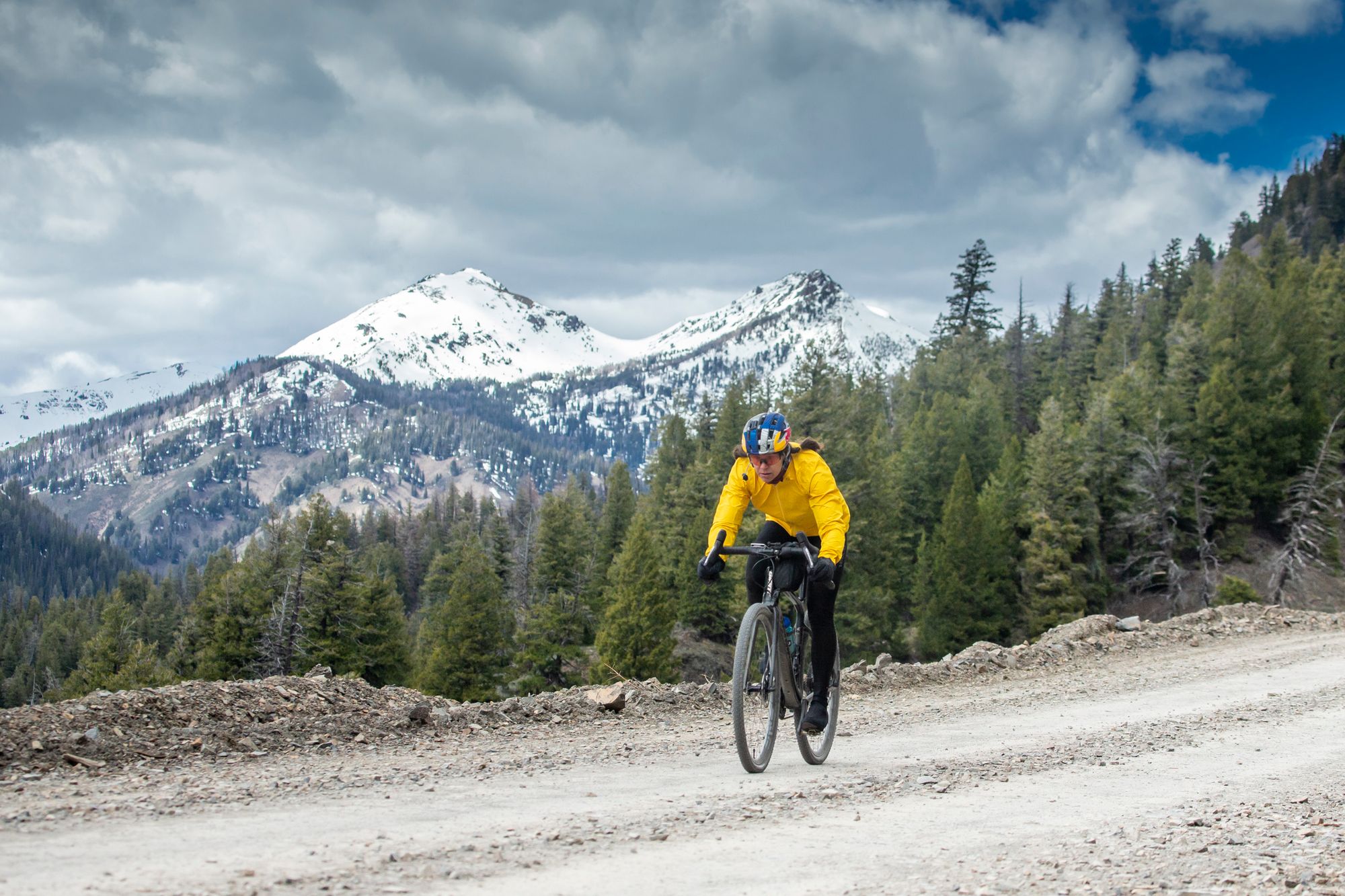
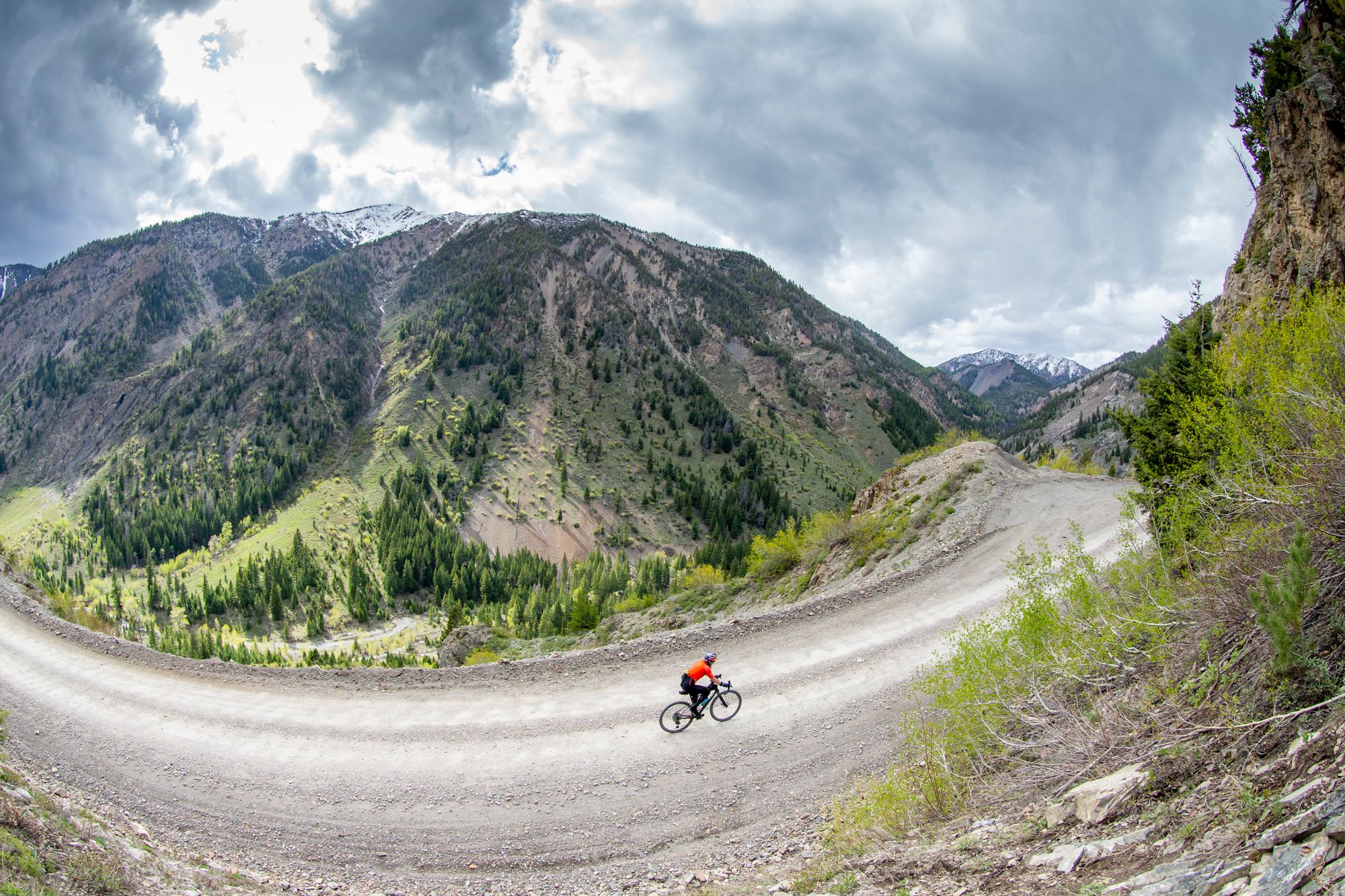
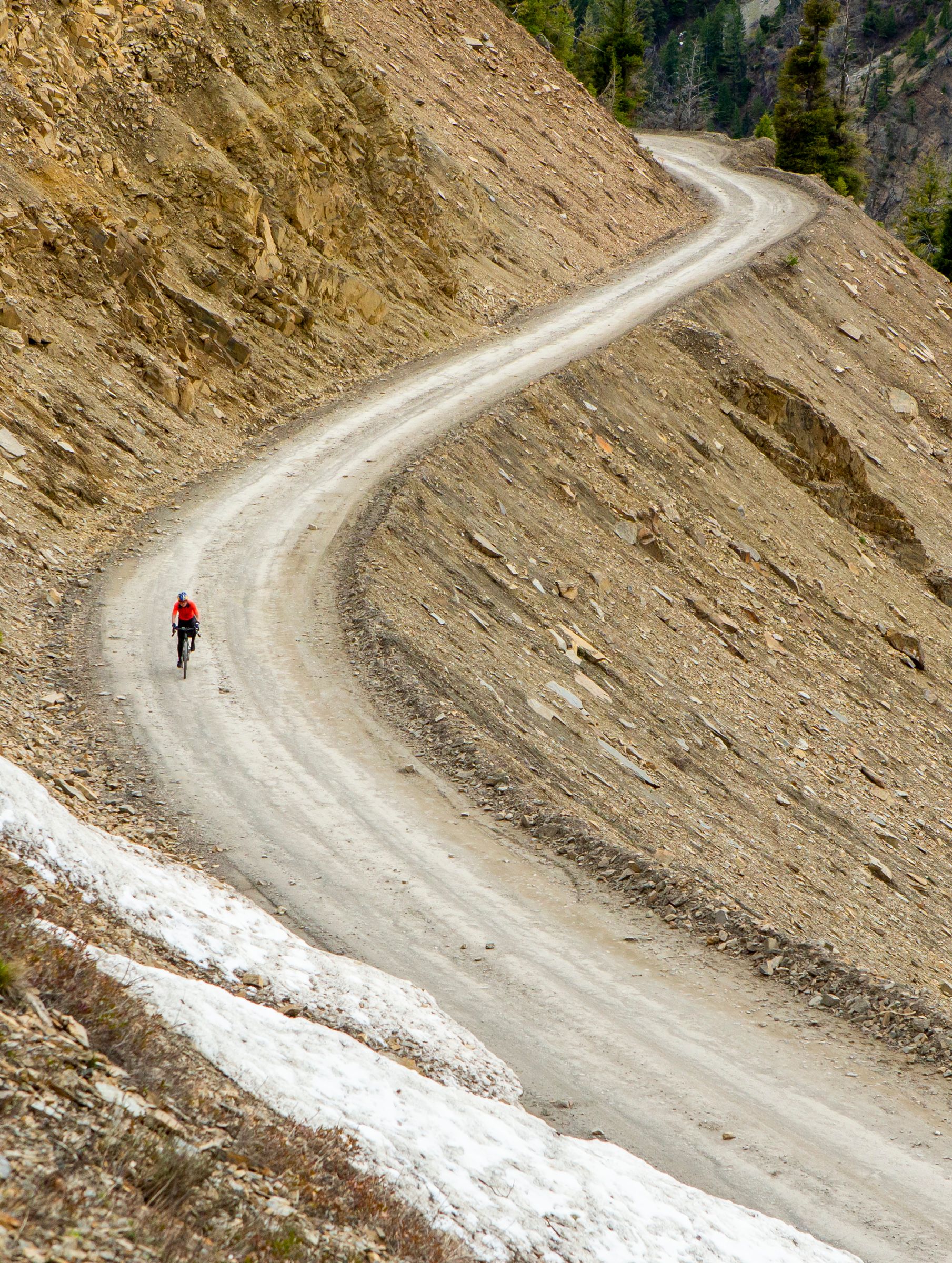
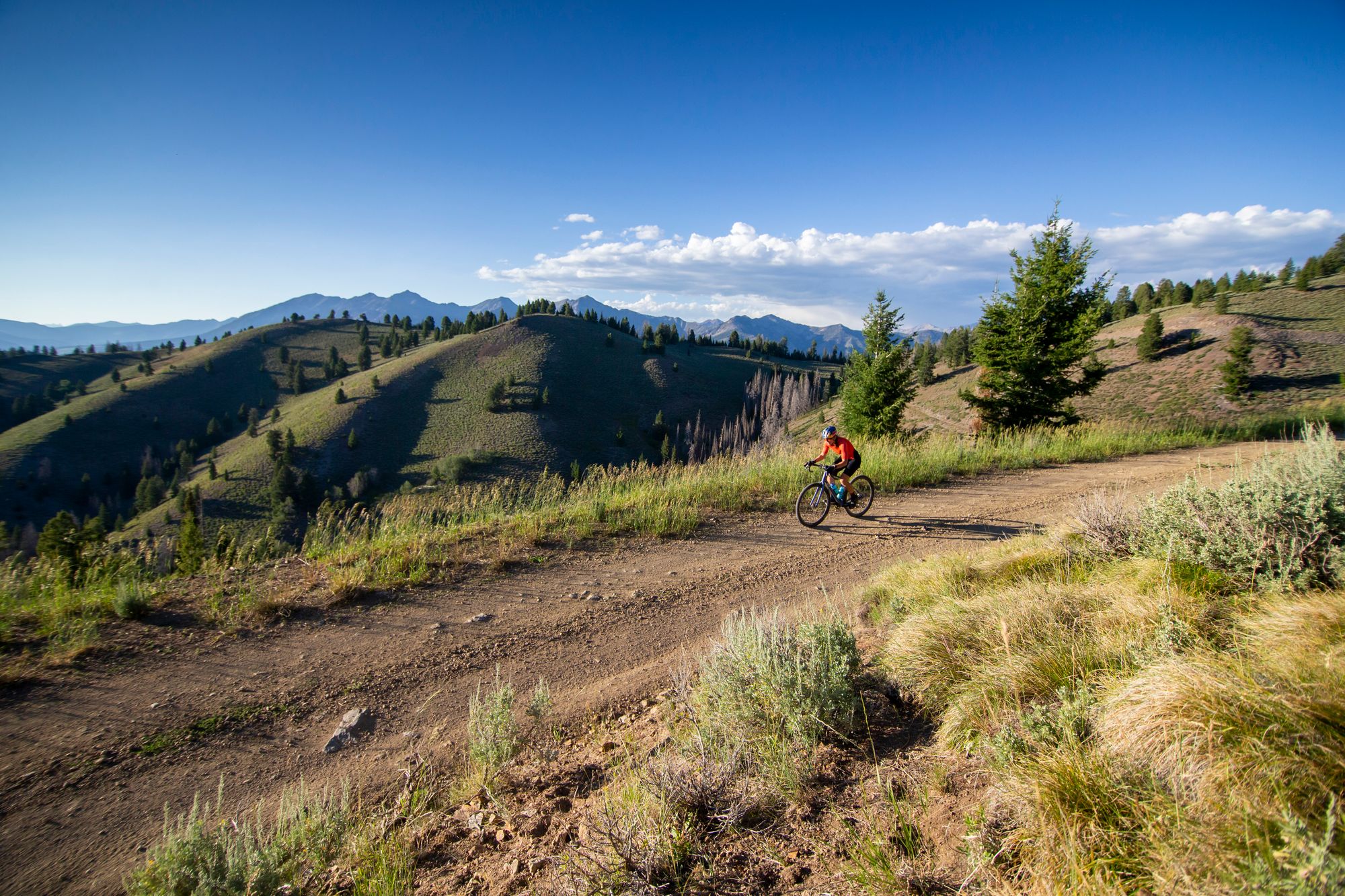
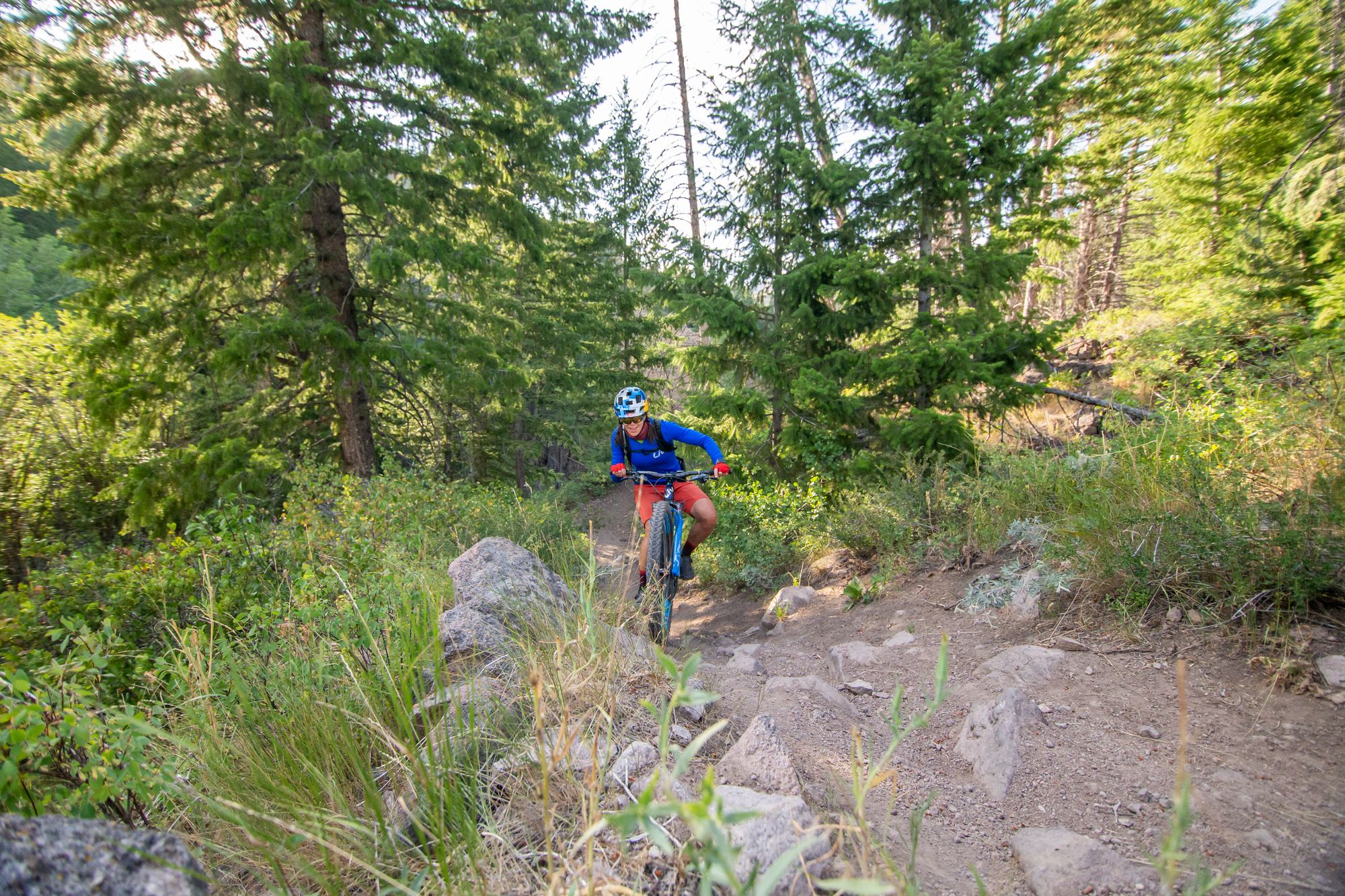
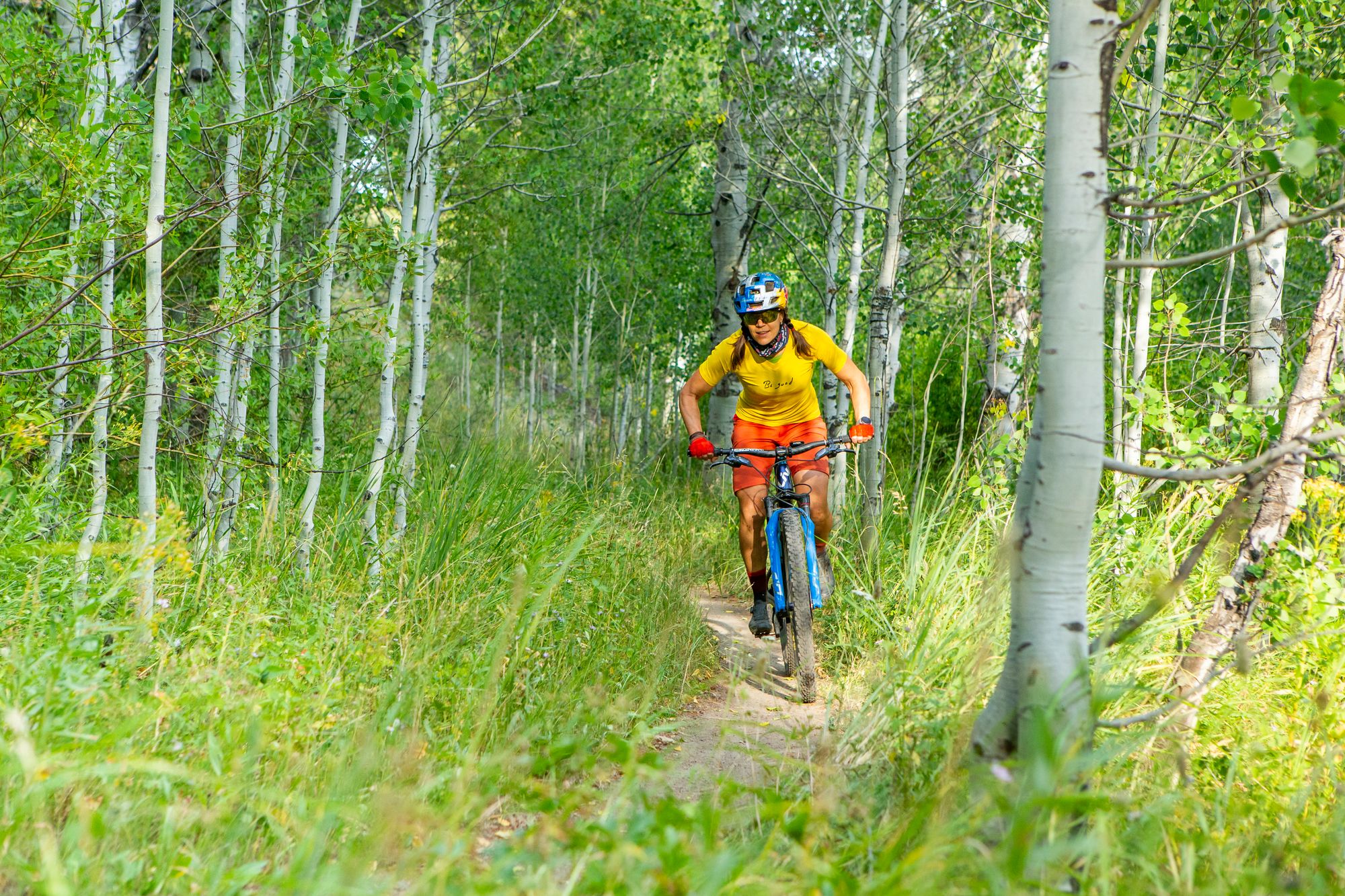
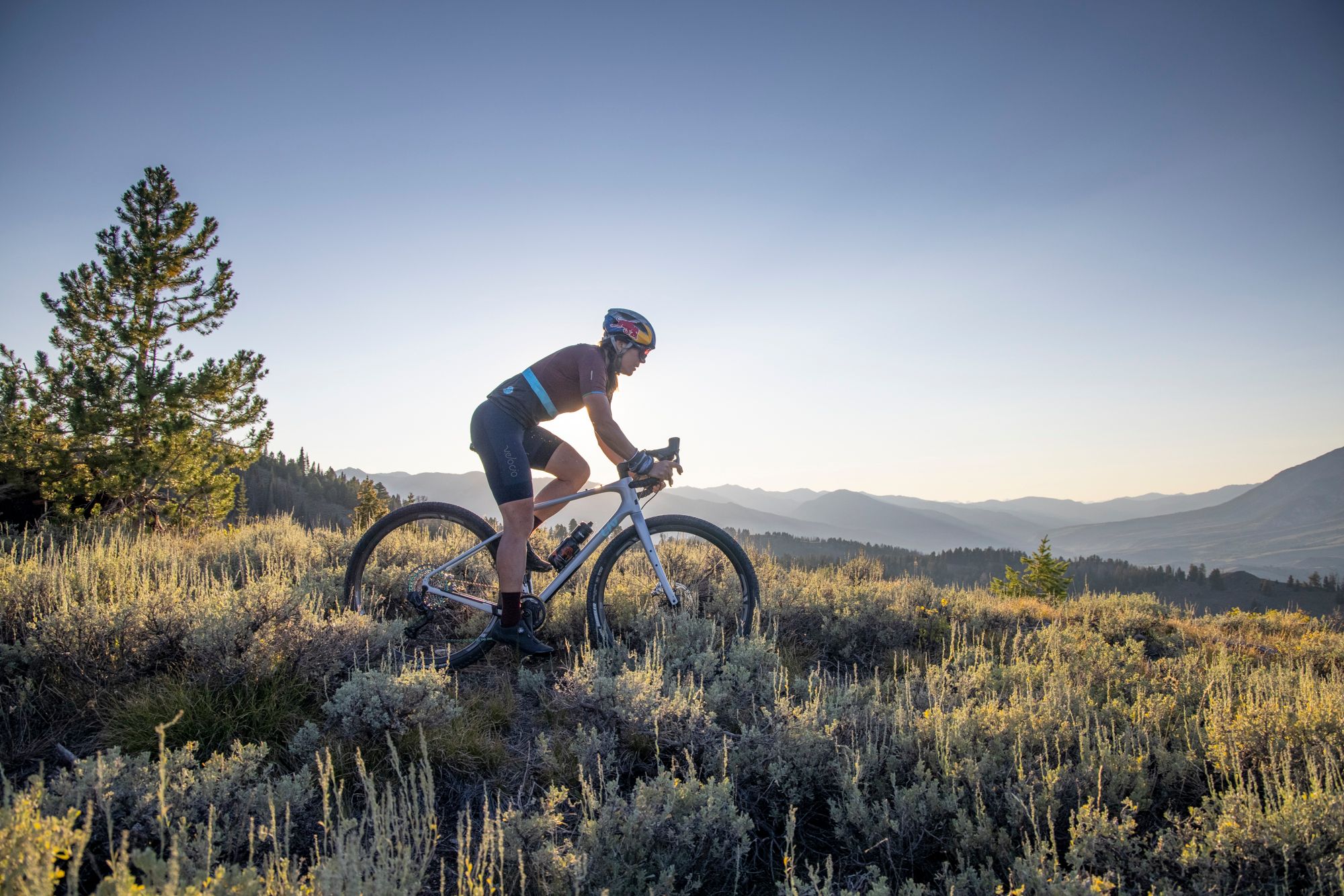
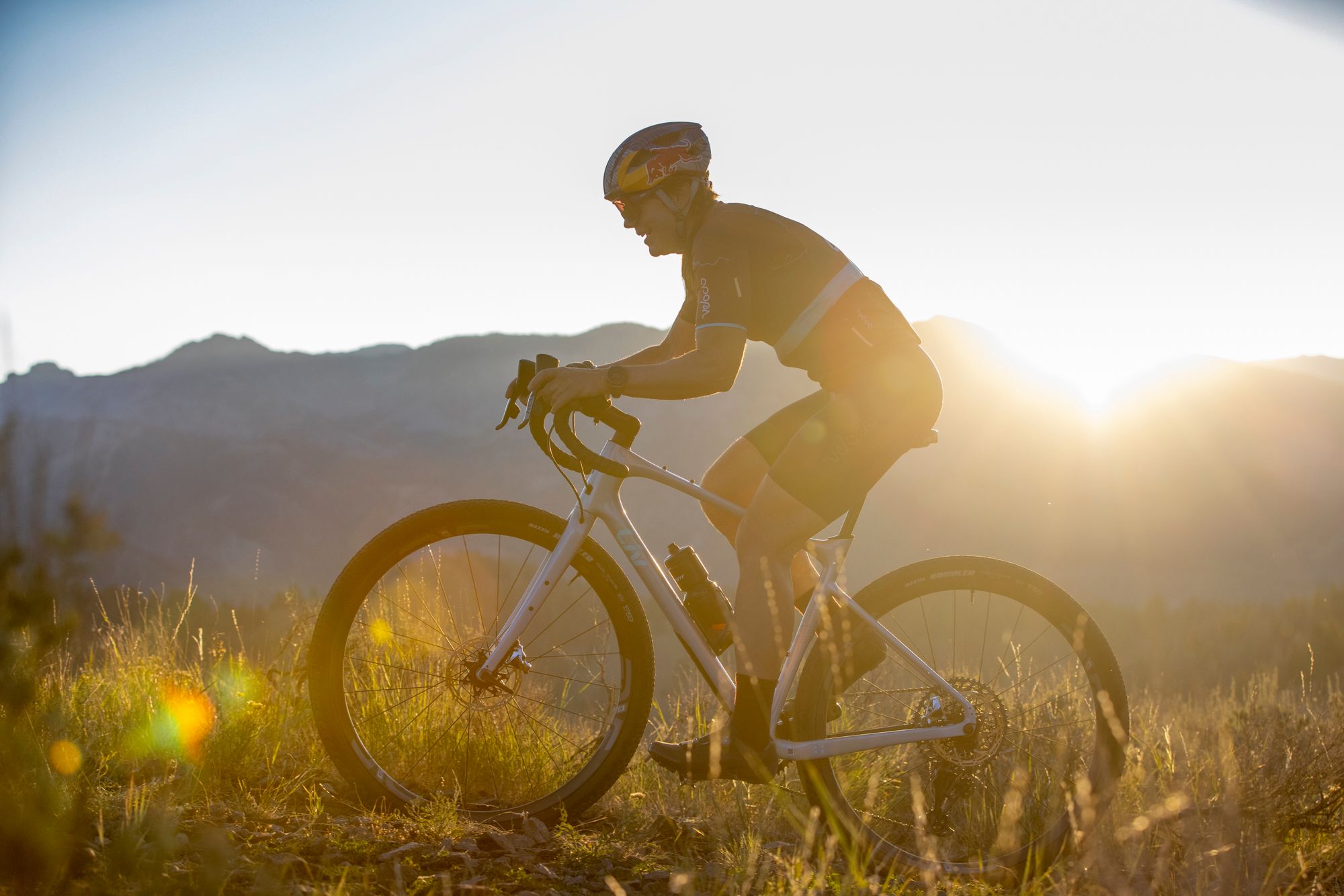
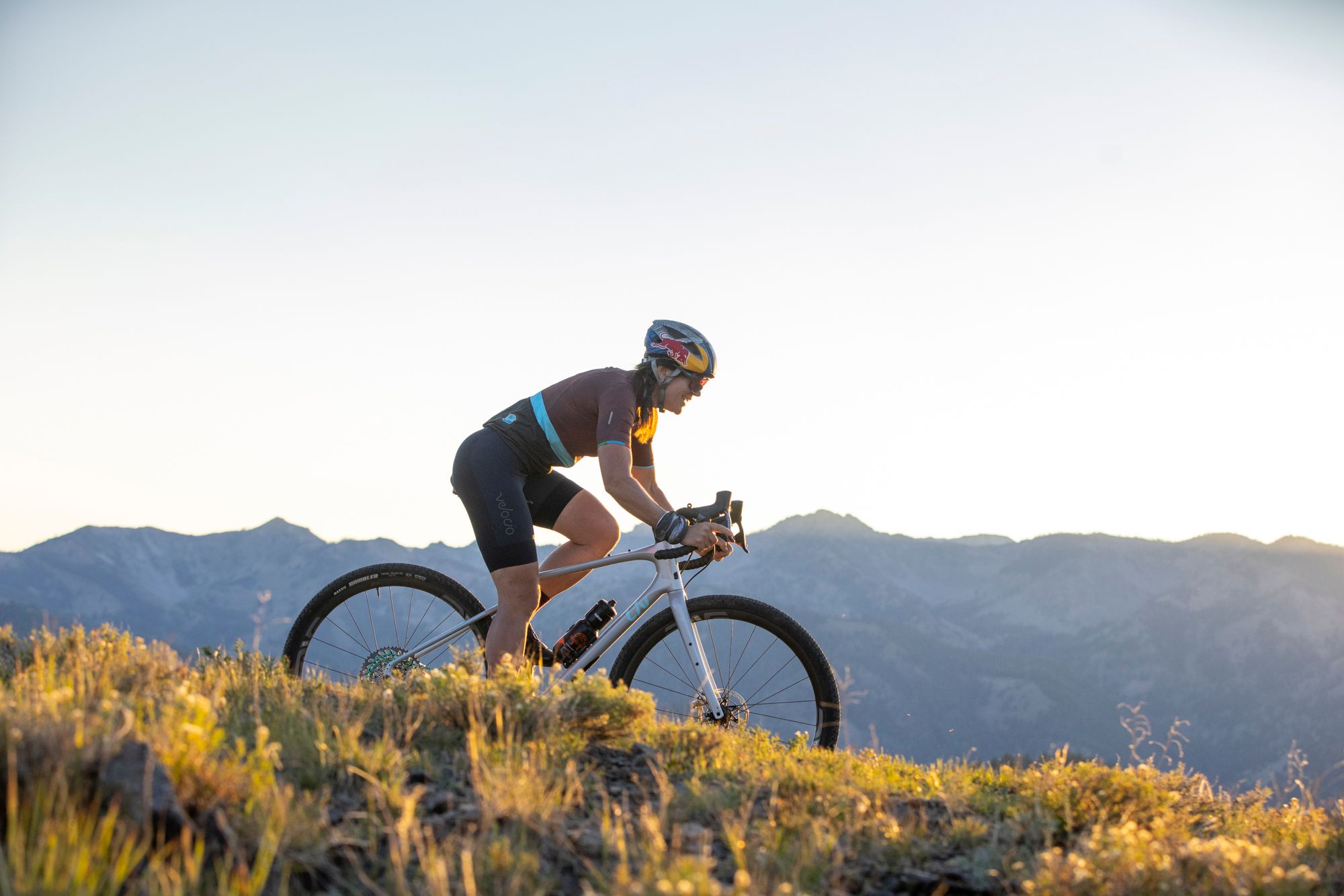
Rebecca is the first female to ascend El Capitan's Bermuda Dunes Route. [Wyatt Caldwell photos]
Perhaps not surprisingly, a lifetime of confronting her own fears meant Rusch wouldn’t allow herself to quit. You’ve practiced years for this, she told herself. You know how to do this. So she kept pushing ahead. She spent a night in the frigid woods completely alone, listening to the distant howl of wolves and practicing the survival skills she’d cultivated for over half her life. It was no longer about winning, but about finding a way to keep moving. And then something remarkable happened: As she made her way back onto the course, she happened across her husband, Greg Martin. It wasn’t planned, but they kept the pace together for the rest of the race, and Rusch, despite her mistake, became the women’s champion once again at the age of 52.
As she spoke over a video call from her Idaho home more than two years later, Rusch recounted the spiritual power of that moment. “The bonus of joining my husband and doing the remaining two days with him was like a deepening of our relationship, and that wouldn't have happened if I hadn't messed up,” Rusch says. “If I was a younger, less experienced athlete, I would have spent a lot more energy being frustrated, and I might have burned calories and put myself in an unsafe position. It was just a reframing of what it means to win.”
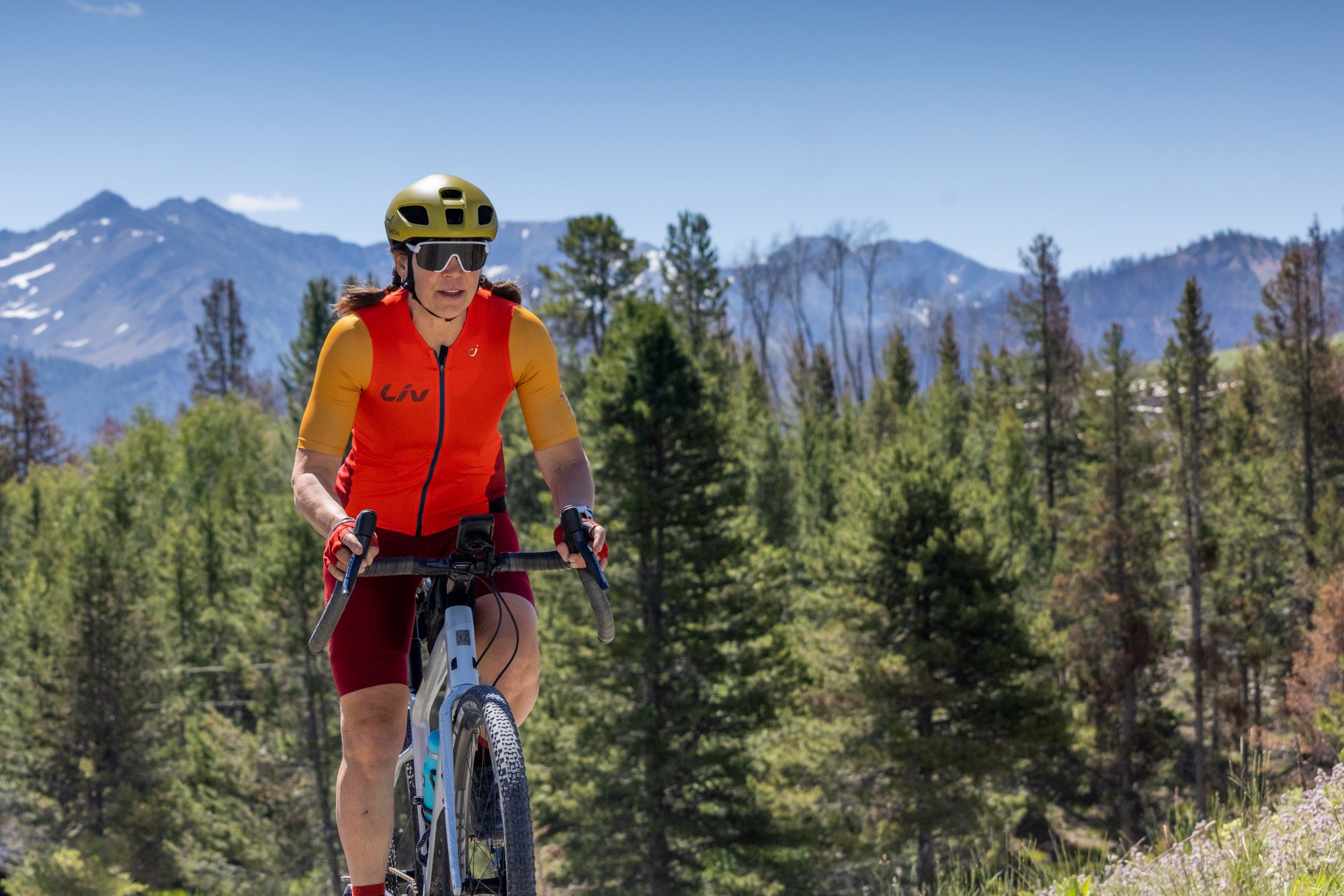
One of the first things I wanted to know from Rusch was what she could possibly still have left to learn. I wanted to know how a woman who had seemingly conquered everything found herself at yet another metaphorical fork in the road, uncertain of what challenges she wanted to take on next. And that’s when she brought up that moment in Alaska and how she’d grown to accept her winding and unpredictable course through her own life, one that so often paid off when she followed her own instincts.
Rusch finished telling me that story and told me how, every time you think the trail has nothing left to teach you–every time you think that maybe you’ve finally figured it out–there it is, throwing you entirely off-course. She calls it “Dirt Dharma,” although in this case, it came to her when she was buried in several feet of snow.
“My teacher is the trail,” she said. “I feel like out there is where I learn and grow. It’s a form of meditation. A vision quest. The best way I can put it is that the pain I feel is a portal to something else. There’s a stronger and more resilient you on the other side.”
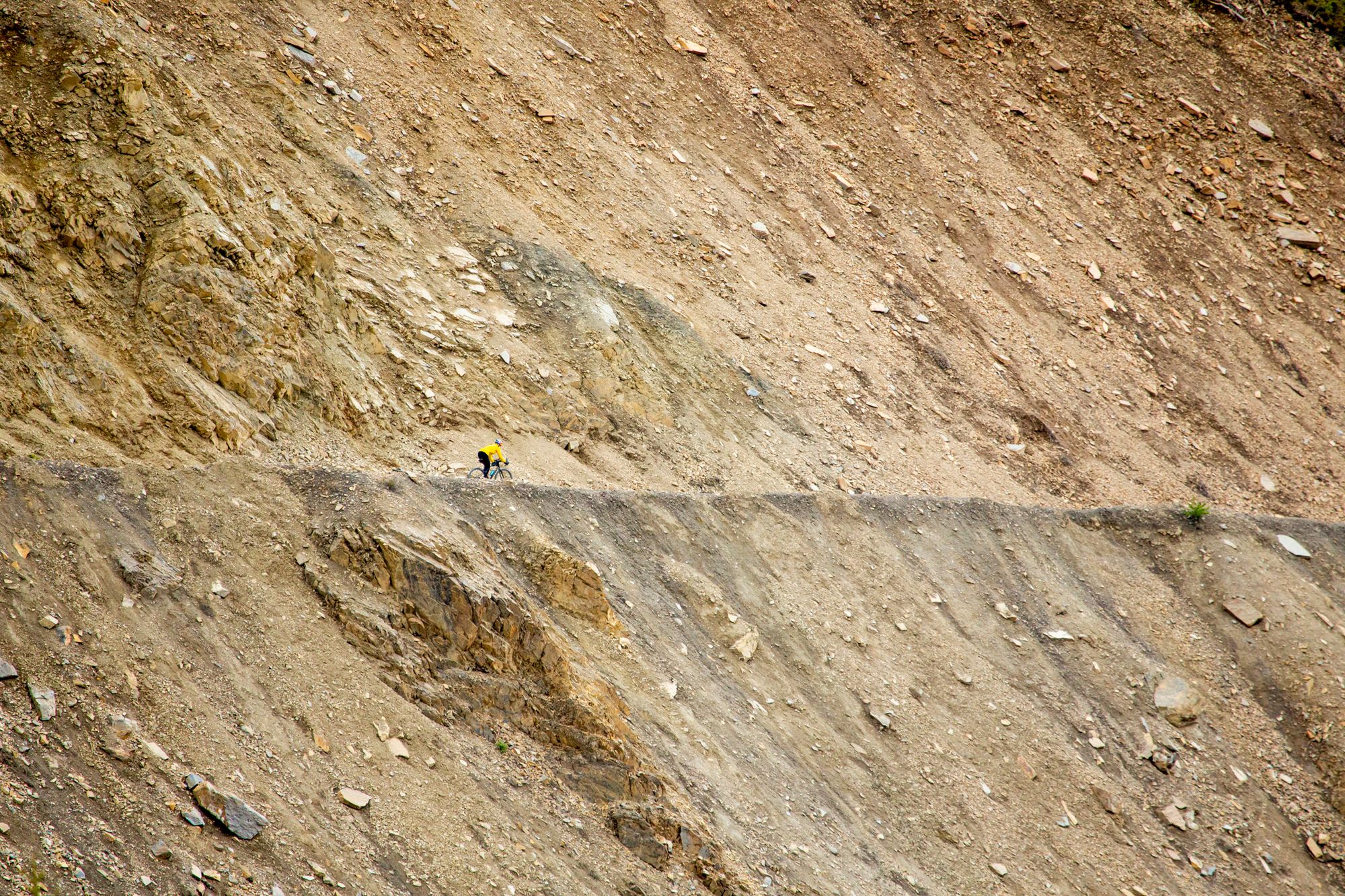
Years ago, Rusch earned the nickname “Queen of Pain” from Adventure Sports magazine for her ability to tolerate nearly any brand of punishment that came her way. In truth, she never quite knew how to feel about that nickname, and she still doesn’t. She understands that it’s supposed to be flattering–a testament to her toughness–but as is often the case, the truth is much more complicated. It’s not simply about punishing yourself, about absorbing all that physical and mental torture, Rusch says. For her, pain is about challenging yourself. It’s about becoming a better version of yourself.
“Pain, just like fear, is often articulated as a four-letter word,” Rusch says. “But if you flip it around, the emotion of pain is really just doing hard work and focus and putting your mind to it and not giving up.”
The inspiration for the nickname began when Rusch started running. Rusch’s father was a pilot who’d been shot down over Laos during the Vietnam War; her mother worked long hours as a single parent, and she and her sister were often left to their own devices. Rusch had taken to running, in part, as a way to break the cycle of bulimia that had overtaken her as a teenager, to channel her fears and anxieties over her life, over her future, over her mom’s burdens, into something positive.
During her senior year, at a qualifying meet for the state cross-country championship, Rusch was recovering from an illness. She felt herself giving in mentally. And midway through the race, she stepped off the course, eager to stop the hurt.
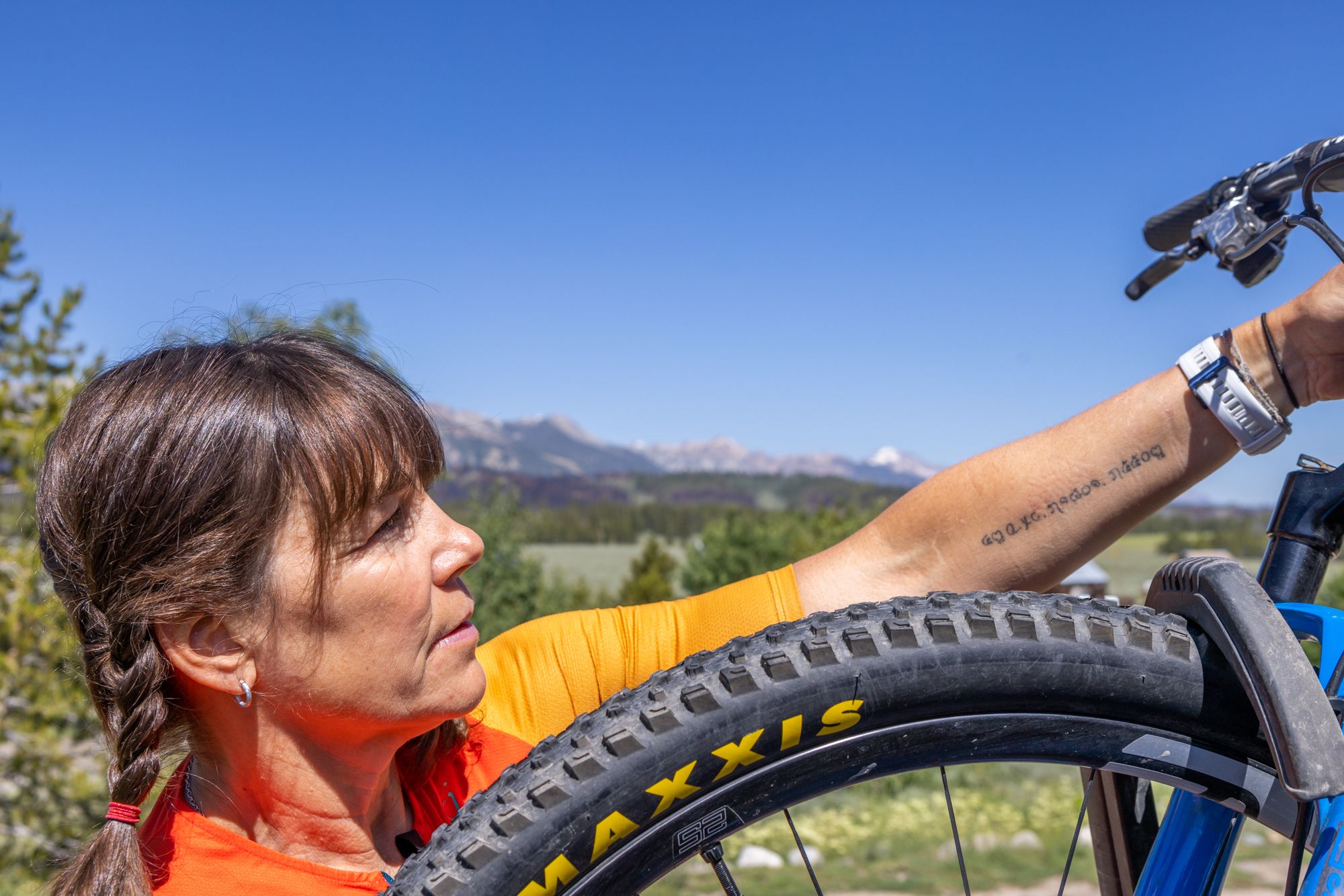
In the weeks afterward, even after she earned all-state status and helped her team win the state title, guilt and fear came flooding in. “The pain of quitting,” Rusch wrote in her memoir, Rusch to Glory, “outlasts the pain of pushing forward.”
And so Rusch continued to push herself forward. After attending the University of Illinois, Rusch found herself in search of something to fill the void the way running once had. She got a job at a gym with a 100-foot climbing wall and found herself mesmerized by the challenge of it. She began going on outdoor climbs with friends. She moved to California and took on epic climbs in places like Yosemite, and eventually got into competitive white-water rafting, in part to take on her own fear of the water. Because for Rusch, the fear is part of the thrill.
“The emotion of fear and, and what happens neurochemically in your brain–it's the same emotion as excitement,” she says. “Even the sound we make, like, if something jumps out at you, that’s fear. But if something exciting happens, you make the same sound. And understanding the neurochemicals, it kind of helps me reframe things. You don’t conquer fear. Do you fight? Do you freeze? Or do you flow when you find fear?”

Rusch committed to bigger and bigger challenges: A run on glorified boogie boards through the river that threads through the Grand Canyon and then a stint in adventure racing, a multidisciplinary team pursuit that took hold on television in the late 1990s, with events like the Eco-Challenge, created by reality television mogul Mark Burnett. Rusch became one of the most dominant women in adventure racing over the course of the next several years. She had a versatile ability to ride bikes, traverse the water, climb and hike for miles and miles without breaking, braving bugs and snakes and leeches, pushing her physical and mental limits with every race, and earning that “Queen of Pain” nickname.
“People ask me all the time, ‘Why do you want to do this? Are you a masochist? Like, why do you wanna go suffer and do all this super hard stuff?’” she says. “And honestly, when we get to practice hard and challenging situations that are self-imposed, we can develop the tools, so when we have to go through getting lost in life, we have the cognitive and emotional tools to actually help us navigate those things.”
As the popularity of adventure racing waned in the mid-2000s, Rusch found herself in one of those challenging situations. She witnessed a fellow athlete die in a tragic accident during an expedition. She began to lose her sponsorships. She called Red Bull, her last remaining sponsor.
You have another year on your contract, they told her. Find something amazing to do.
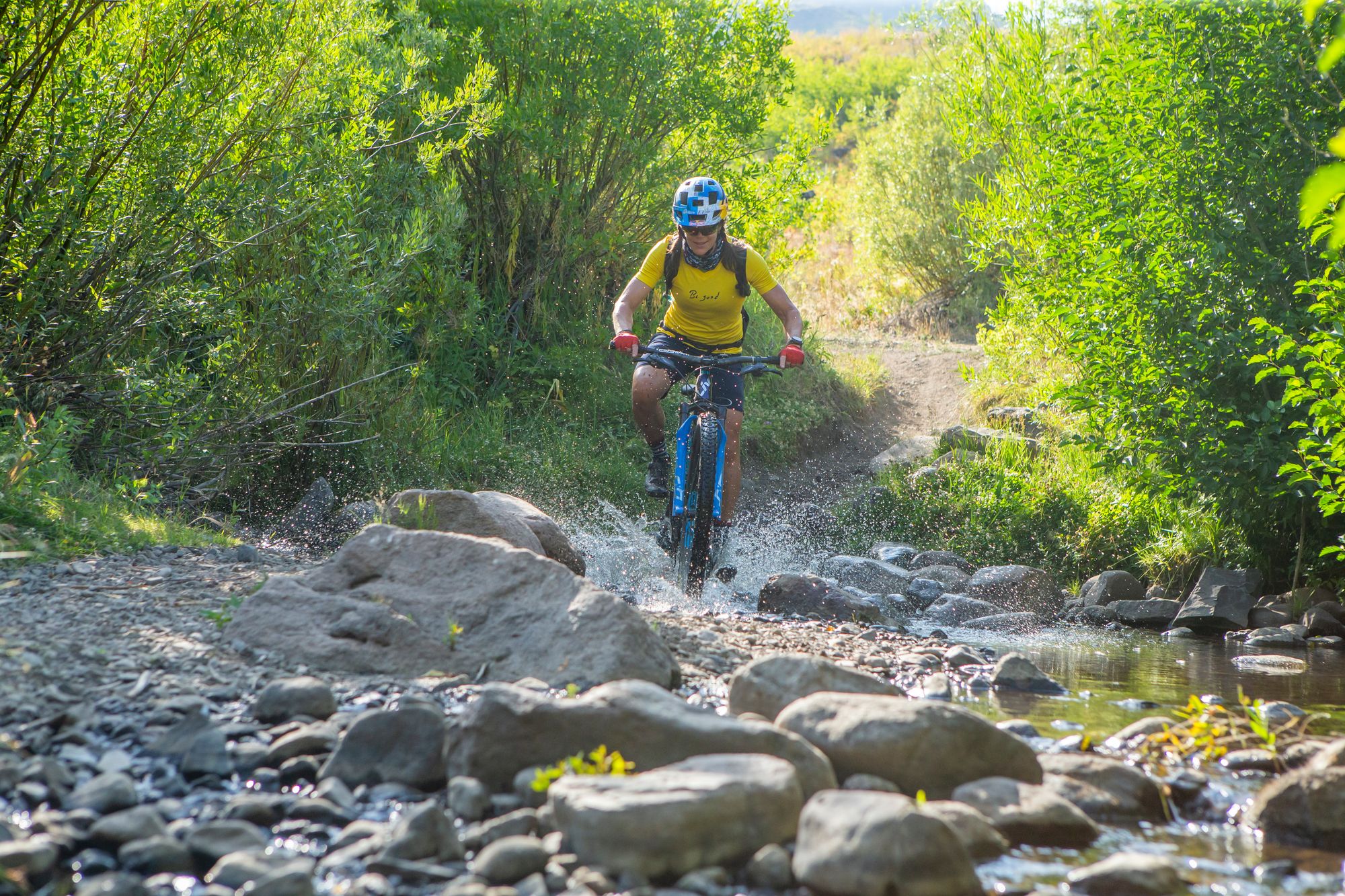
Rusch began chasing a Plan B. She settled in Ketchum, Idaho, and fulfilled another longtime dream by becoming a part-time professional firefighter. Meanwhile, a friend suggested she take up mountain biking. Rusch was skeptical at first, but as she fell into it, she met and fell in love with a rider named Greg Martin, who would become her husband. She didn’t have the skills at first, but her determination was the equalizer and put her near the top in several races, including 24-hour marathon races that played to her resilience.
And then she started winning: In 2009, she bested the women ‘s field in a legendarily punishing 100-mile mountain bike race in Leadville, Colorado. In 2010, she won it again. And in 2011, she won it an unprecedented third time.
In 2012, Rusch mounted her bike at the starting line and felt an odd sense of peace that she hadn’t felt before.
“I was just kind of deep-breathing and looking around and smiling and saying hi to my competitors,” Rusch says. “And I wasn’t nervous. And later, my husband was like, ‘I was really worried about because normally you’re so freaked out on the starting line.’”
But something took over, the way it did in Alaska. Rusch, at least for that moment, had conquered her fears. She was ready to flow with them. “I was just really excited and happy,” she says. “There just wasn’t any fear.”
Rusch wound up winning and breaking her own record time. And soon after, it was on to the next challenge; the next opportunity to learn and grow.
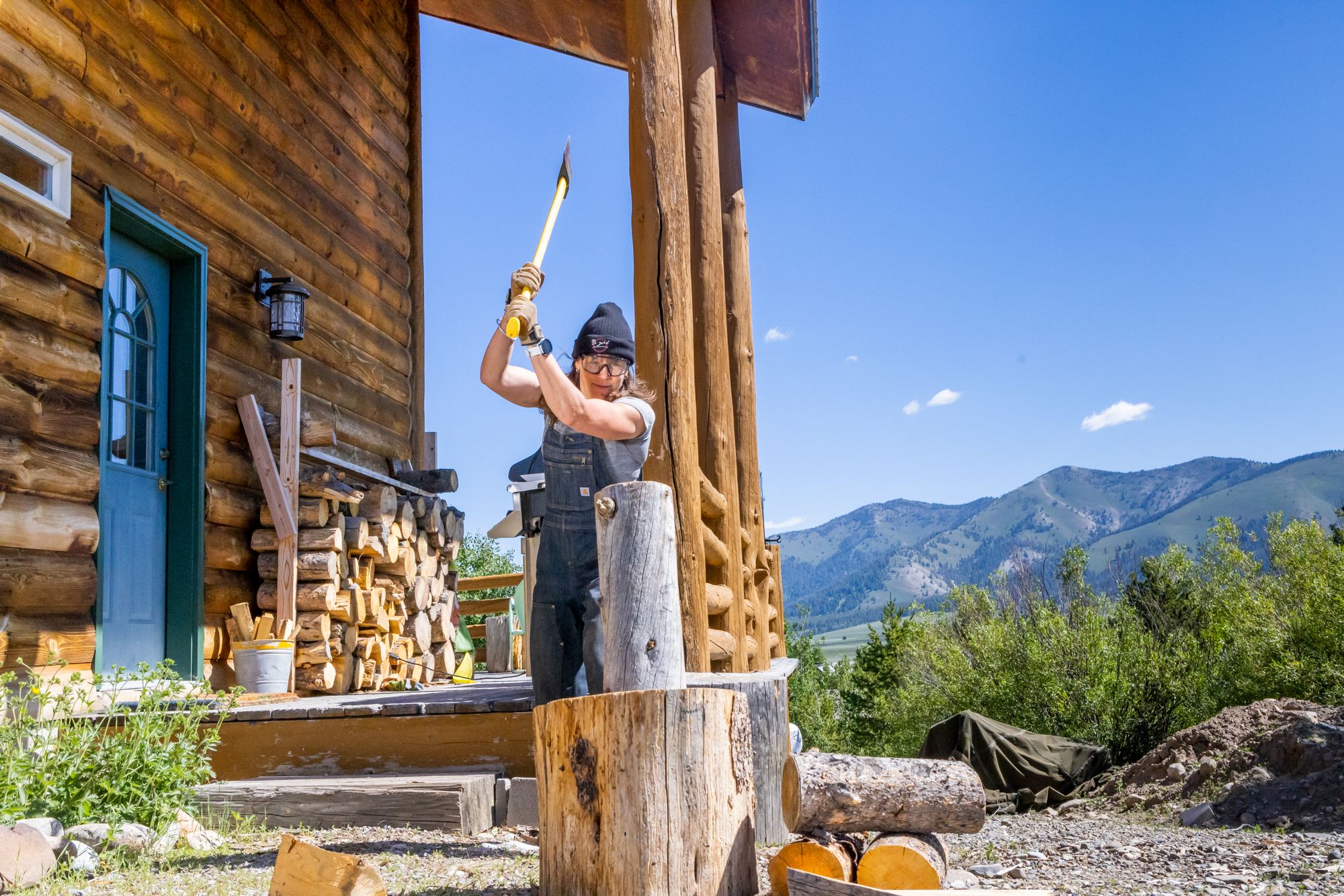
In the wake of her success, Rusch began to contemplate how she could share the way nature inspired her to conquer her fears. So she decided to start her own event in 2013, a gravel biking race in her adopted hometown of Ketchum that was open to everyone. Gravel biking appealed to Rusch as an inclusive pursuit that even beginners could take up. Rusch called the race Rebecca’s Private Idaho, and over a decade later, it’s still going strong.
“If you have a body, if you're alive as a human and you have a body, moving it in nature is gonna make you feel better no matter who you are,” Rusch says. “If you’re on gravel roads in nature, and you haven’t ridden before, that can be life-changing. People really have these deep physical emotional experiences, because it’s a hard course, and they’re like, ‘Why did you make it so hard?’ And I’m like, ‘I made it hard because it is hard.’ Experiences don’t move us if they’re easy.”
The race even changed the life of a family member: Her husband Greg’s sister, Tammy Riggs.
“She came to ride the race the year after (Greg’s) father died,” Rusch says. “And she’s not athletic in any way, shape or form.”
But Tammy made a promise after speaking to her father about the race in the weeks before her father died. She told him she would not ride the short 19-mile version of the course; she would ride the 56-mile version. She borrowed a bike, took off…and immediately struggled to make her way up the 1,500-foot climb at the start of the course. But then she did something that Rusch herself could relate to: She embraced the pain.
“I saw her out on the course, and she was crying, and she was the last person to finish,” Rusch says. “It took her eight hours to do 50 miles. But it was just such a tribute to her father – sort of like, the power of her love for him.”
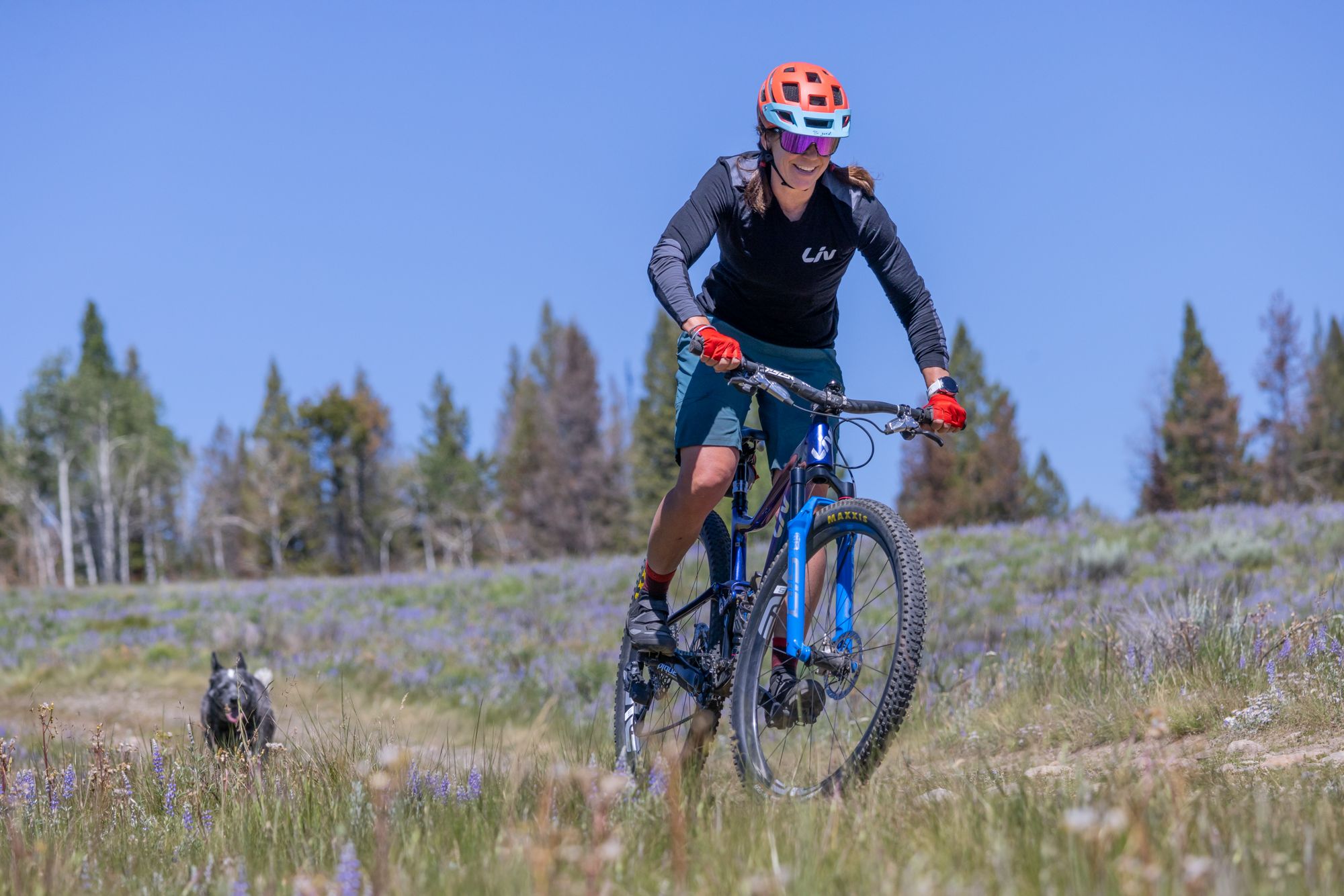
For Rusch, that connection between fathers and daughters hit home. In 2015, she’d taken on her own seemingly impossible quest to connect with a father she hardly knew: She flew to Vietnam and rode over 1,200 miles on her bicycle along the Ho Chi Minh trail to find the crash site in Laos where her father’s fighter jet went down more than four decades earlier. Trailed by a camera crew, Rusch laid herself bare; the result, a documentary called Blood Road, won a news and documentary Emmy award in 2018. It also helped connect in new ways with her sister, a retired two-star Air Force general.
“When we were growing up, no one talked about the Vietnam War,” Rusch says. “We didn’t talk about my dad dying. Blood Road helped us recognize that by sharing our stories, we actually become a support network for the rest of humanity. So I feel this responsibility to share whatever wisdom or intelligence I have–to kind of fast track the next generation, or help someone else who might be dealing with a challenge.”
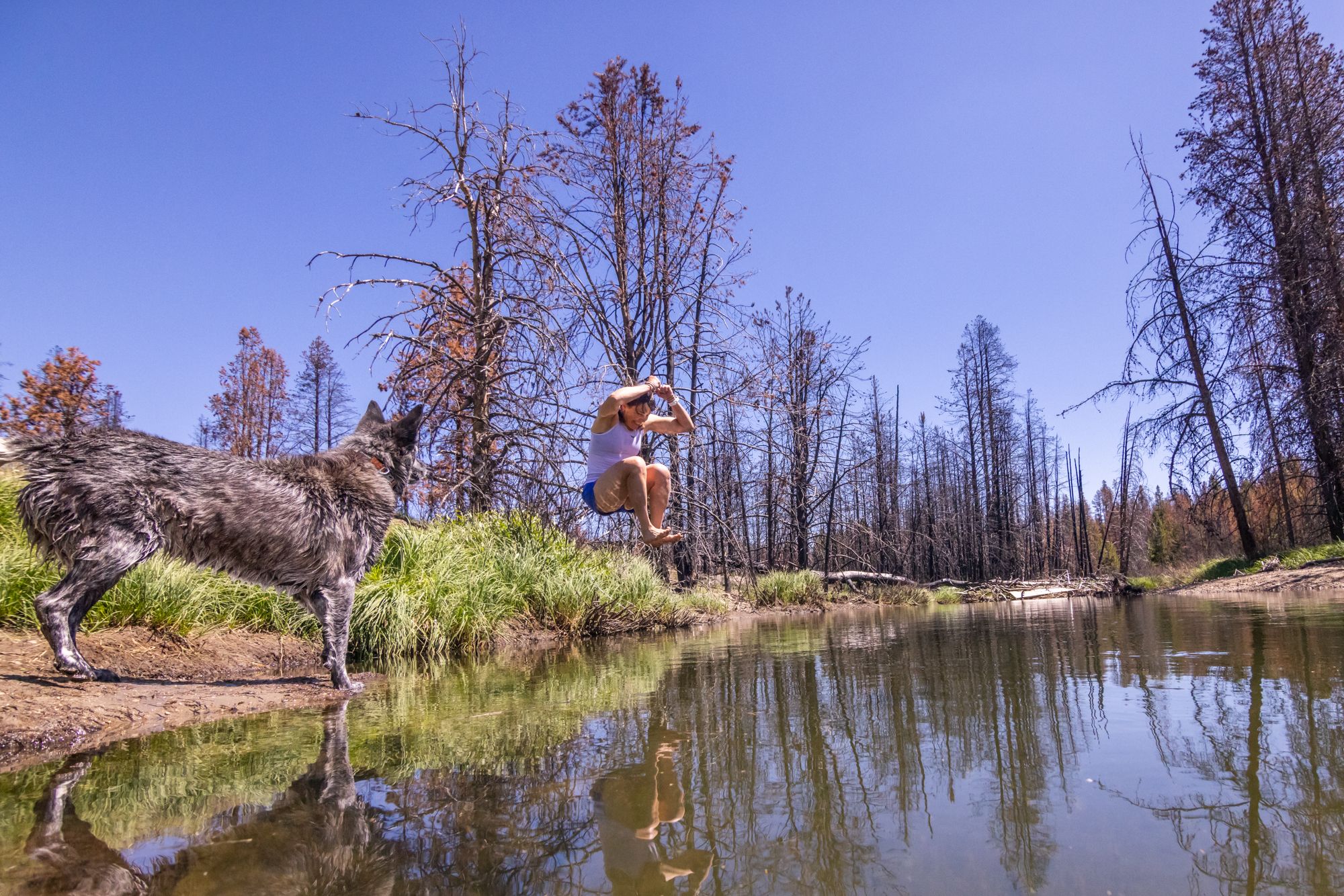
For Rusch, that wisdom no longer comes from winning and losing, as it might have when she was younger. It comes from the journey. It comes by being out on the trail, whether near her home in Idaho or someplace far from home. It’s why she says she has no plans to stop riding, or to “retire” as an athlete. It’s why she’s thinking of writing a second book in order to share the wisdom she’s gained over the past decade since Rusch to Glory was published, and it’s why she’s doing more speaking engagements and filming more videos from out in the wilderness. And it’s why she plans to keep moving forward, wherever that might take her next.
“I follow my heart a lot and then I figure out the work later,” she says. “I’m kind of in one of those phases right now where my heart wants to go exploring, and I want to take people on the trail with me. You know, not everyone can go ride the Iditarod trail for seven days. But I can take people on that journey.”